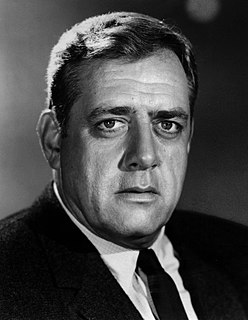A Quote by Francis Bacon
He that hath wife and children hath given hostages to fortune, for they are impediments to great enterprises, either of virtue or mischief. Certainly the best works and of greatest merit for the public have proceeded from the unmarried or childless men, which both in affection and means have married and endowed the public. He was reputed one of the wise men that made answer to the question, when a man should marryA young man not yet, an elder man not at all.
Related Quotes
Children sweeten labours. But they make misfortune more bitter. They increase the care of life. But they mitigate the remembrance of death. The perpetuity of generation is common to beasts. But memory, merit and noble works are proper to men. And surely a man shall see the noblest works and foundations have proceeded from childless men which have sought to express the images of their minds where those of their bodies have failed.
A man that hath no virtue in himself, ever envieth virtue in others. For men's minds, will either feed upon their own good, or upon others' evil; and who wanteth the one, will prey upon the other; and whoso is out of hope, to attain to another's virtue, will seek to come at even hand, by depressing another's fortune.
Ownership by delegation is a contradiction in terms. When men say, for instance (by a false metaphor), that each member of the public should feel himself an owner of public property-such as a Town Park-and should therefore respect it as his own, they are saying something which all our experience proves to be completely false. No man feels of public property that it is his own; no man will treat it with the care of the affection of a thing which is his own.
Man is an Animal, formidable both from his Passions and his Reason; his Passions often urging him to great Evils, and his Reason furnishing Means to achieve them. To train this Animal, and make him amenable to Order; to inure him to a Sense of Justice and Virtue, to withhold him from ill Courses by Fear, and encourage him in his Duty by Hopes; in short, to fashion and model him for Society, hath been the Aim of civil and religious Institutions; and, in all Times, the Endeavour of good and wise Men. The aptest Method for attaining this End, hath been always judged a proper Education.
Miss Prism: And you do not seem to realize, dear Doctor, that by persistently remaining single, a man converts himself into a permanent public temptation. Men should be more careful; this very celibacy leads weaker vessels astray. Chasuble: But is a man not equally attractive when married? Miss Prism: No married man is ever attractive except to his wife. Chasuble: And often, I've been told, not even to her.
Nature hath made men so equal in the faculties of body and mind, as that though there be found one man sometimes manifestly stronger in body, or of quicker mind than another, yet when all is reckoned together, the difference between man and man is not so considerable as that one man can thereupon claim to himself any benefit to which another may not pretend as well as he.
As a great part of the uneasiness of matrimony arises from mere trifles,, it would be wise in every young married man to enter into an agreement with his wife, that in all disputes of this kind the party who was most convinced they were right should always surrender the victory. By which means both would be more forward to give up the cause.
By the cross we, too, are crucified with Christ; but alive in Christ. We are no more rebels, but servants; no more servants, but sons! "Let it be counted folly," says Hooker, "or fury, or frenzy, or whatever else; it is our wisdom and our comfort. We care for no knowledge in the world but this, that man hath sinned, and that God hath suffered; that God has made Himself the Son of Man, and that men are made the righteousness of God."




































